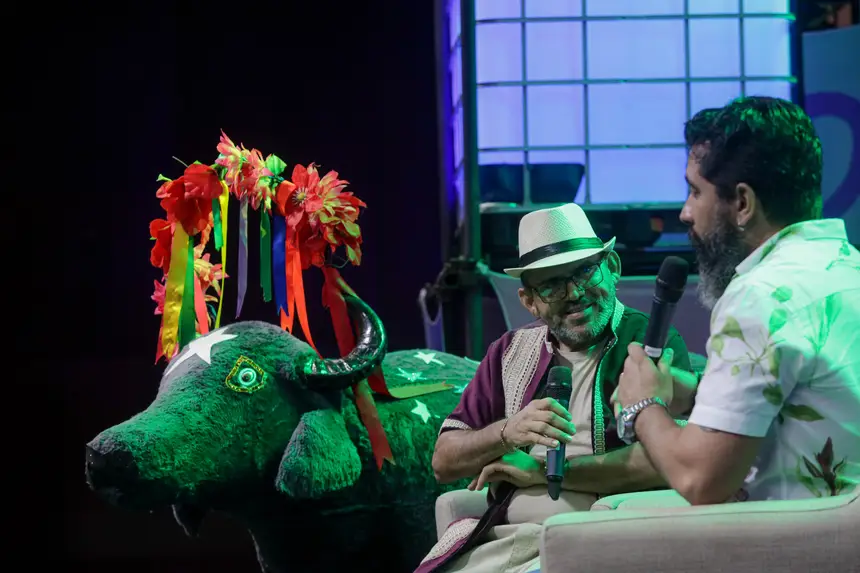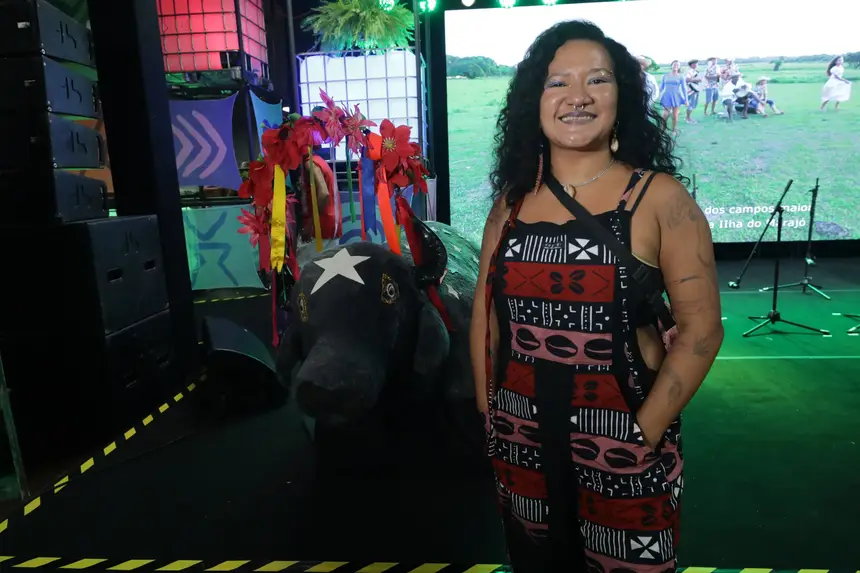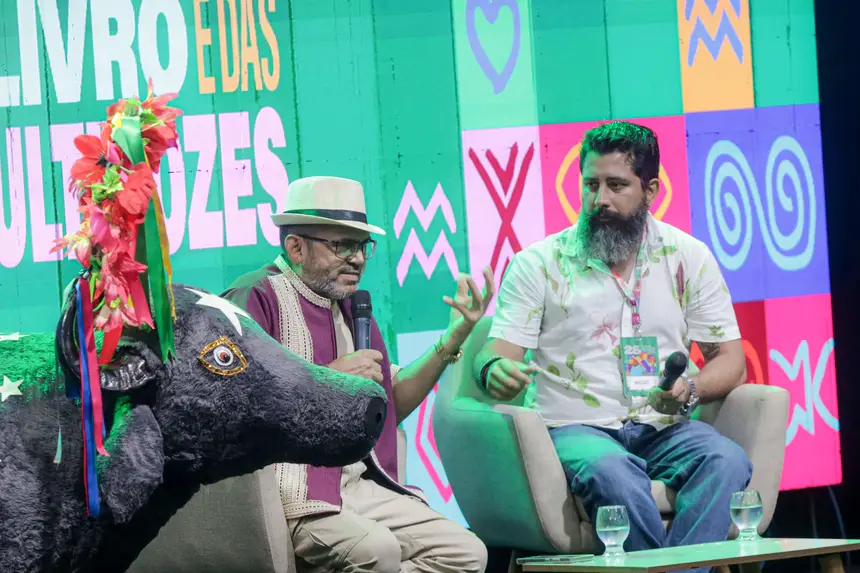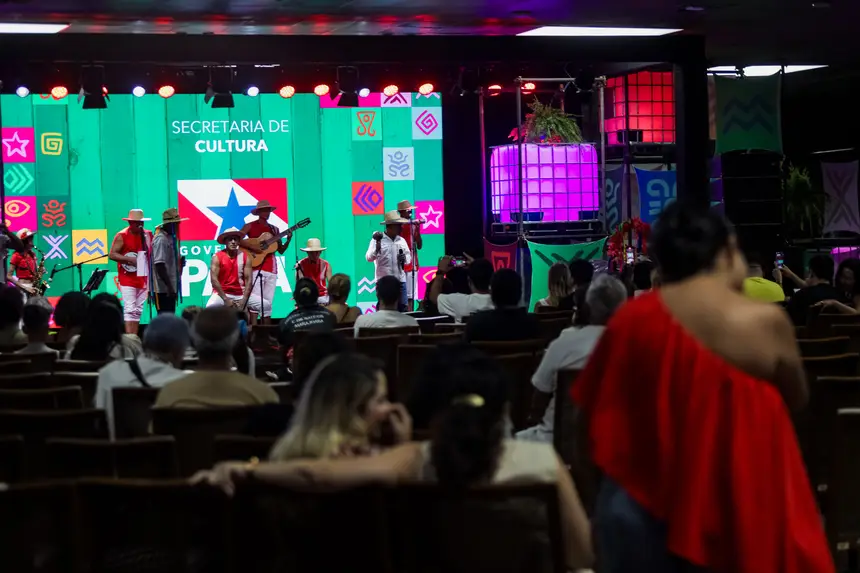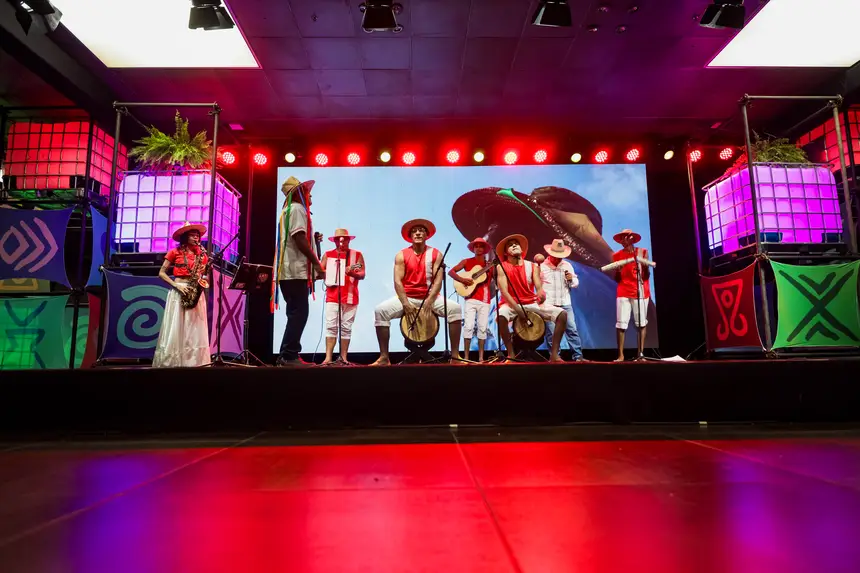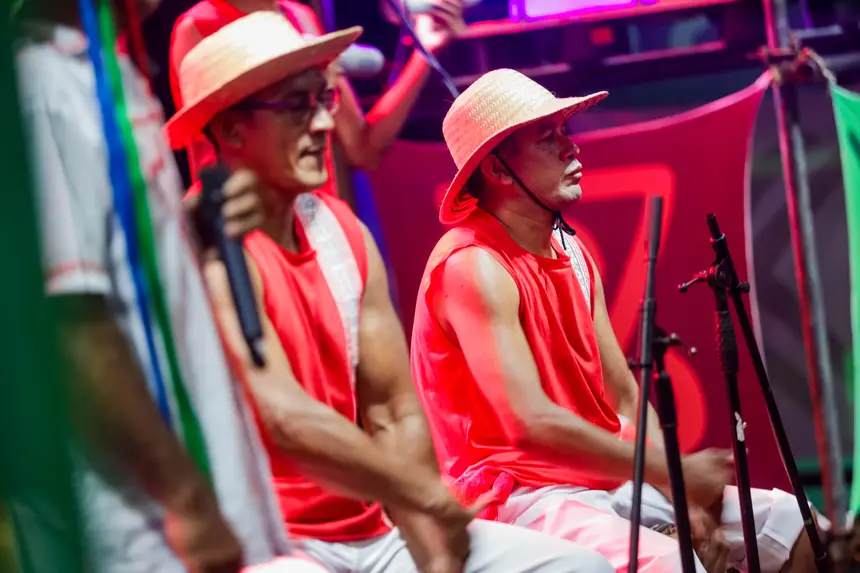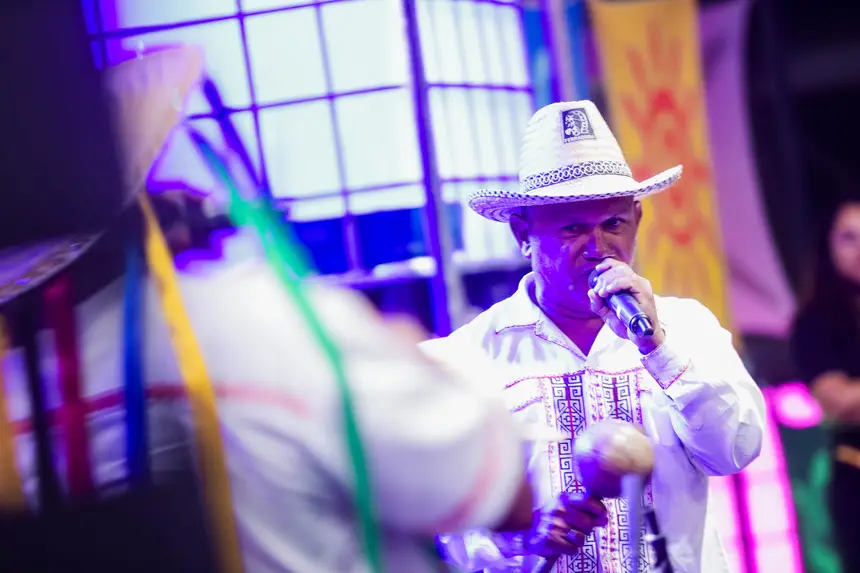Chat at the Pan-Amazonian Fair celebrates the life and work of Master Damasceno, an icon of Marajoara popular culture
The cultural program of the night also featured performances by three references of Pará's carimbó: Master Robledo, Master Eliezer, and the group Nativos Marajoara
The 28th Pan-Amazonian Book and Multivoices Fair opened its cultural program on the night of this Friday (16) with a special tribute to Master Damasceno, one of the great names of popular culture in Pará and Brazil. The chat brought together researcher and cultural producer Guto Nunes and professor Agenor Sarraf, who shared reflections on the trajectory of the Marajoara composer, singer, and repentista, revered as a true guardian of Amazonian orality.
Born on July 22, 1954, in the Quilombola Community of Salvá, in Salvaterra, in the Marajó Archipelago, Master Damasceno built a career marked by the strength of oral tradition, music, and cultural resistance. At 19, he lost his sight in a work accident, but remained committed to spreading carimbó and boi-bumbá. Creator of the show Búfalo-Bumbá and leader of the group Nativos Marajoara, he continues to be active at 70, enchanting generations with his art.
In the chat, Guto Nunes highlighted the sensitivity of the Government of Pará, through the State Secretariat of Culture (Secult), in including Master Damasceno among the honorees of the Fair. "He was very happy, very honored. He is a master of oral tradition, and the invitation symbolizes a reparation. Although he was excluded from conventional literary spaces, because his work is not 'laid on paper', he is today crowned for his trajectory. He is a black man, blind, from the Amazon, who has reached unimaginable territories, even academia, with master's theses, and opens paths for other masters of orality," he stated.
Knowledge - Professor Agenor Sarraf from the Federal University of Pará (UFPA) emphasized the importance of valuing the ancestral knowledge represented by the master. "Damasceno built a great spectacle of art, culture, and wisdom. His Búfalo-Bumbá brings the indigenous and African heritage, and recognizing his story also encourages other masters from various regions of Pará to be valued. He teaches us to explain the world through singing, and this is essential in a moment of climate crisis, when we need to look at the knowledge that kept the forest standing," he pointed out.
Cultural journalist and activist Priscila Cobra, present at the meeting, reinforced the impact of the honoree's legacy. "Master Damasceno is a source of pride for all of us in carimbó. As a black woman from the periphery of Belém, I see in him an even greater inspiration because he translates in his compositions the intimate relationship with the territory, with the quilombo, with ancestry, and with the Amazonian nature. He is poetry, resistance, and strength, and encourages new generations to continue the fight for popular culture," she declared.
The recognition of Damasceno has been long-standing and includes important honors, such as the Eneida de Moraes Commendation (2023), the Master Verequete Medal (2023), and the title of Citizen of Belém. In the same year, his work was declared an intangible cultural heritage of Pará, and in 2024, he became an immortal of the Marajoara Academy of Letters. His discography totals more than seven albums and contributions to compilations, as well as national awards, such as the nomination for the Brazilian Music Award in 2024.
Tradition - The cultural program of the night also featured performances by three references of Pará's carimbó: Master Robledo, Master Eliezer, and the group Nativos Marajoara. A long-time friend of Damasceno, Robledo brought to the stage the tradition inherited from his father, Master Pau Que Ronca, and emphasized the emotion of sharing the tribute. "It is a joy to be here celebrating the life of this brother in the journey. Carimbó and boi are stronger because we walk together," he said.
Master Eliezer from Soure also took the stage with his group Cruzeirinho. A curimbó player and defender of Marajoara culture, he reminded that valuing popular masters is essential for the continuity of tradition. "These moments of gathering are seeds that we plant in the new generations, so that carimbó remains alive, pulsating in Marajó and throughout Pará," he affirmed.
The closing was led by Nativos Marajoara, a group led by Master Damasceno himself. In an emotional show, the musicians presented songs from recent albums, such as Chegou Meu Boi and Encontro D’Água, blending carimbó, banguê, and toadas of búfalo-bumbá. The audience present at the Hangar closely followed and celebrated with applause and dances the legacy of Damasceno, who vibrated alongside his stage partners.
Guto Nunes also stated that the feeling was one of celebration and continuity. "Amidst applause and emotional testimonies, it became clear that the tribute was not just to an artist, but to a story of resistance, ancestry, and love for the Amazon. The Chat and the shows at the Pan-Amazonian Book Fair reaffirmed that Master Damasceno's voice is indeed one of the multivoices that echo through the forest, the rivers, and the territories of Pará," he concluded.


